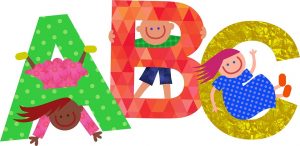
Benefits of Nursery Rhymes to Preschoolers
It may surprise you but the play involved in nursery rhymes can build up a preschoolers motor skills and help them to cope with the challenging task of going to school, interacting with children of all sorts of backgrounds and cooperating with the teacher.
Gross Motor Skills Building in Pre-Schoolers
The meaning of gross motor skills is the ability to control the major muscles of the body for crawling, walking, sitting and etc. For example, the children’s rhyme “If Your Happy and You Know It” teaches a child to clap in time to the lyrics also in order for baby or child to clap in time to the song first they need to learn to recognize the words on queue. This cute little ryhme originates in American appearing around 1950. This song is said to have a lot of similarities as a Soviet Union song from 1938 titled “Molodejnaya”. This rhyme is particularly notable because it has a series of activities that involved the total body. The song invigorates children to clap your hands, shout hooray, slap their knee, turn around, snap fingers, nod the head, tap the toes, honk the nose, pat their head and shout out, “we are”!
How Building Motor Skills Aides in Development in Preschool-age Children
Yes, children learning to make the appropriate movements along with a rhyme like “If Your Happy and You Know It” is a vital tool because it aides in the development of hand and eye coordination with in turn helps a child to be able to tie their shoe or use scissors in the classroom. These type of activities encourage the child to be independent and perform tasks for themselves.
Children’s Rhymes Can Be Educational
A child regularly listening to rhymes encourages them to build an appreciation for rhyming and music. Also, many rhymes tell a story with a background rooted in history. For example, “Ring Around the Rosy”. This rhyme depicts the tragic era of the Great Plague. This can be an opportunity for the parents to take time with the child and discuss major challenges that people have faced through the years.
Rhymes, Songs and Games Overall
Overall, the activities that children perform while singing, rhyming and playing games are not just frivolous fun. Being able to get a handle on controlling their major muscle groups early in life can set them up for later years having more adaptability towards playing sports and other physical activities. As children play together in groups they are interacting with all sorts of personalities. When conflict occurs, in the spirit of fun and games, they are able to get past it and move one. Rhyming games usually require cooperation and the ability to listen and follow directions. These skills are necessary to succeed in attending school. Learning through play is a fun way to teach your child to cope with life outside the protective walls of home.